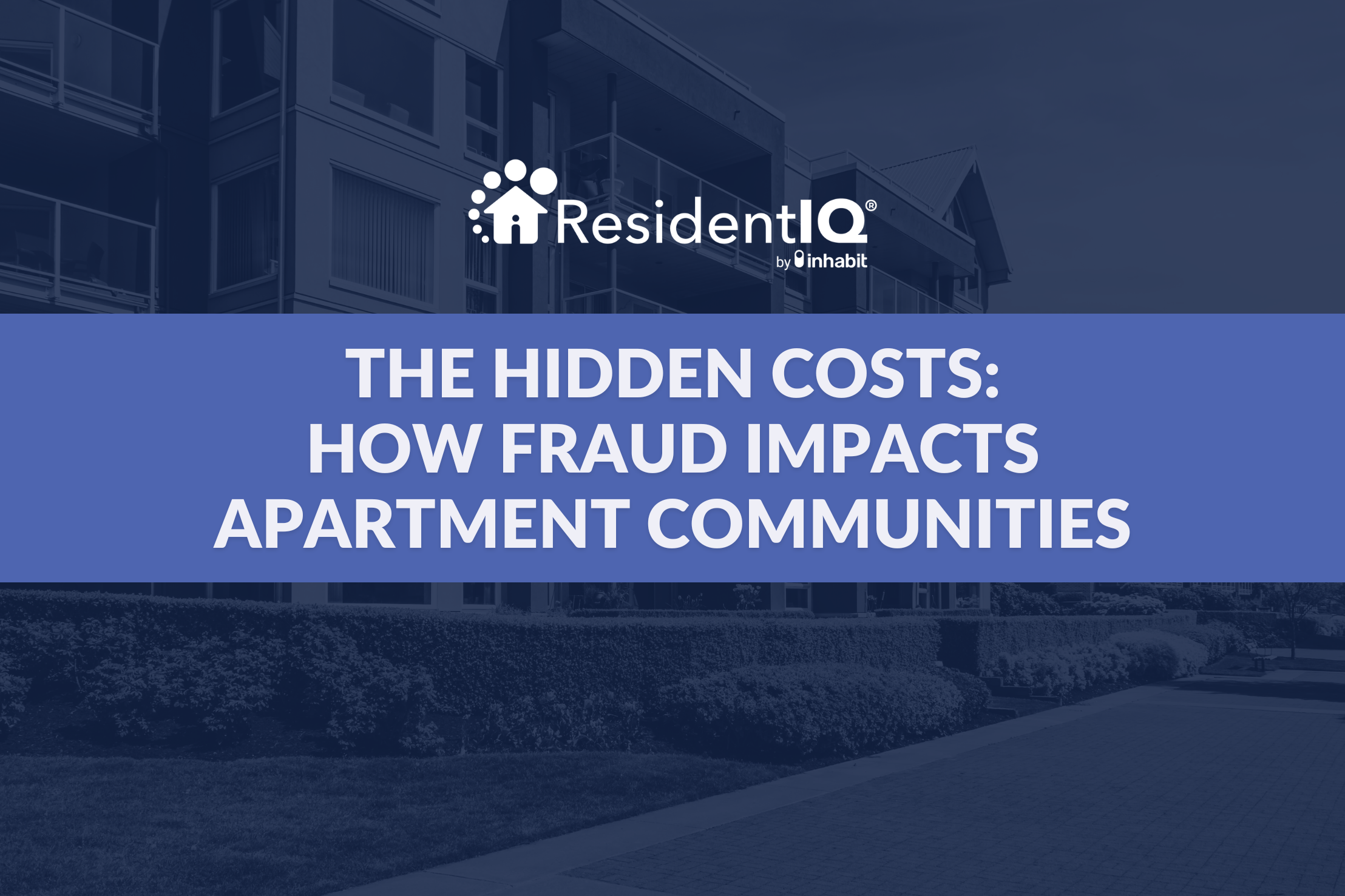Creating a Fraud-free Community
Fraud is a pervasive issue that affects many sectors, and apartment communities are no exception. While often overlooked, the impact of fraud in these communities can be significant, leading to financial losses, decreased property values, and strained relationships among residents and management.
According to the National Multifamily Housing Council (NMHC), 93.3% of property managers that were surveyed experienced some form of fraud within the prior year.
Understanding the various forms of fraud and their implications can help property managers and residents take proactive steps to mitigate these risks.
Types of Fraud in Apartment Communities
- Identity Theft: One of the most common forms of fraud is identity theft, where individuals use false information to secure leases. This can lead to non-payment of rent, damage to property, and difficulties in evicting fraudulent tenants due to legal complications.
- Application Fraud: Prospective residents may falsify information on rental applications, such as employment details, income levels, or rental history. This can result in renting units to individuals who cannot afford them or who have a history of damaging properties.
- Subletting Scams: Unauthorized subletting can occur when tenants rent out their apartments without permission. This can lead to over-occupancy, increased wear and tear, and potential legal issues if sub-tenants are not vetted properly.
- Insurance Fraud: Some tenants or even property managers might file false insurance claims for damages that did not occur, inflating costs for everyone and leading to higher insurance premiums for the community.
Financial Impact
The financial ramifications of fraud in apartment communities are substantial. Direct losses can include unpaid rent, repair costs for damages caused by fraudulent tenants, and legal fees for eviction proceedings. Indirect costs involve increased insurance premiums and higher costs for background checks and screening processes. Ultimately, these expenses can lead to higher rents for all tenants, as property owners try to recoup their losses. According to a 2022 study cited by USA Today, 65% of property managers that experienced unpaid rent would be more likely to raise rents for all residents.
Impact on Property Value
Fraud can negatively affect the overall value of an apartment community. Frequent incidents of fraud can lead to a reputation for being unsafe or poorly managed, deterring potential tenants. High turnover rates and prolonged vacancies also contribute to decreased property values. Investors may be hesitant to invest in communities with a history of fraud, further diminishing the property’s market value.
Strain on Community Relationships
Fraud can erode trust within the community. Honest tenants may feel insecure and distrustful, knowing that fraudulent activities are occurring around them. Property managers may face increased scrutiny and criticism for failing to prevent fraud. This atmosphere of mistrust can lead to a less cohesive and harmonious living environment, reducing overall satisfaction and community spirit.
Prevention and Mitigation
To combat fraud, multifamily communities must adopt comprehensive strategies that include:
Robust Screening Processes: Implementing thorough resident screening checks including background checks and verifying all application information can help identify potential fraudsters before they become tenants.
Regular Audits: Conducting regular audits of financial records and vendor contracts can help detect and prevent fraudulent activities.
Employee Education: Educating property staff about the signs of fraud and encouraging them to consistently learn more through a learning management platform.
Technology Utilization: Leveraging technology, such as digital lease agreements and secure online payment systems, can reduce the risk of identity theft and other forms of fraud.
Insurance and Legal Safeguards: Ensuring adequate insurance coverage and legal safeguards can protect against the financial impact of fraud.
Fraud is a serious issue that can have far-reaching consequences for apartment communities. By understanding the various forms of fraud and implementing proactive measures, property managers and residents can work together to create a safer, more secure living environment. The costs of ignoring fraud are too high, but with vigilance and cooperation, these communities can thrive despite the challenges. With ResidentIQ, we can help you build a fraud-free community that residents are proud to call home. Learn more about our software solutions.
